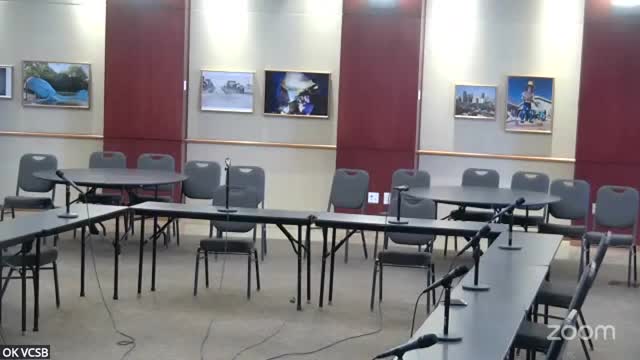Statewide Virtual Charter School Board approves $1.2 million subsidy to expand Horizon free AP program
Get AI-powered insights, summaries, and transcripts
Subscribe
Summary
The Statewide Virtual Charter School Board approved a $1.2 million subsidy to expand the Horizon Consortium’s free Advanced Placement offerings for Oklahoma school districts, prioritizing rural and first‑year members; board members also heard testimony from Horizon teachers, students and partner schools about program uptake and outcomes.
The Statewide Virtual Charter School Board voted to approve a $1,200,000 subsidy to expand the Horizon Free Advanced Placement program, a statewide consortium that provides online AP and honors courses at no cost to joining districts.
Board members approved the funding after a presentation from Horizon staff and partner educators who described the program’s growth and use by districts statewide. The subsidy is intended to provide larger discounts to rural schools and incentives for districts joining Horizon for the first time.
Horizon staff told the board the consortium currently lists 196 members and offers 29 AP and honors courses; staff said the AP Seminar course will be added in the fall and that their recruitment goal is at least 300 consortium members by the June recruitment deadline. Horizon presenters said the consortium provides online AP courses and “rock bottom group pricing” on supplementary courses, and emphasized the program is free to join for districts.
Kevin McDonald, an Edmond Memorial High School English teacher who develops and teaches Horizon AP English Language and Composition, described how virtual AP coursework connects students across the state and noted the program’s effect on his teaching: “This experience, learning to teach my content in a largely asynchronous virtual context, has pushed me as an educator to consider my best practices for all of my students and figure out how to make sure that I give them all the best version of me possible.”
Emery Ozturk, principal of Dove Virtual Academy, told the board his school uses Horizon for a wide range of AP and honors offerings and reported high AP exam results from the first year of participation: “We have 3 districts and down schools OKC, Tulsa and the Virtual Academy. We received the highest testing score 80% on the AP exams,” he said, describing students who have gone on to four‑year colleges and credit transfers.
Board members asked operational questions about class size and program delivery. Horizon staff said individual course sections are capped at 25 students and that, when enrollment reaches 26, the program opens a new section. The board also discussed hybrid models in which a local staff member supervises Horizon instruction on campus while Horizon instructors teach remotely; Horizon staff said several districts already use that hybrid approach.
The board discussed how the subsidy would be applied. Horizon staff said the subsidy will be targeted: first‑year participants and rural/low‑income schools receive a 30% subsidy on Horizon fees; returning consortium members receive a 20% subsidy. Board members also reviewed vendor partnerships Horizon has secured and said some vendors provide personnel or professional development at no cost to Horizon.
The motion to grant $1,200,000 for Horizon subsidies was moved and seconded; the board called the question and the motion carried. After the vote board members and Horizon staff discussed outreach plans for the spring recruitment season, including video testimonials, a flyer campaign, social media segments and in‑house marketing support from Horizon’s new assistant director.
The board’s approval covers the subsidy only; budgeted marketing and outreach activities, board members said, will be handled from existing Horizon lines. The board previously authorized a $900,000 subsidy; Horizon staff said that allocation was used and that the proposed increase reflects the program’s growth and vendor support.
The board also heard a short student and teacher panel demonstrating Horizon coursework, including remote students’ experiences of synchronous and asynchronous elements and how AP courses are structured in the program. Horizon presenters emphasized the program’s role in expanding access to AP coursework in rural districts and in districts with thin staffing.
The vote to approve the $1.2 million subsidy carried. Horizon representatives said they will continue recruitment outreach and noted plans for additional vendors, professional development, and a fall rollout of the AP Seminar course.
